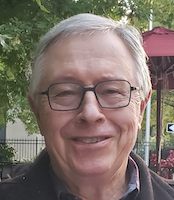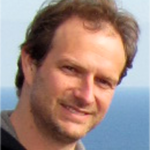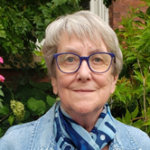The Canadian National committee includes both Members and Observers.
Members
Ernie Boyko |
CODATA Mr. Boyko has a background in Agriculture Economics and spent most of his career as a senior manager in Statistics Canada where he was involved in all aspects of data from collection to dissemination to analyses. After retiring from StatCan, he spent ten years with Carleton University where he introduced faculty and graduate students to the fundamentals of research data management. Mr. Boyko’s work with the International Association for Social Science Information Service and Technology (IASSIST) made him aware of the challenges that researchers faced in trying to afford the data from Statistics Canada. Working with Wendy Watkins and the university research community, he co-founded Canada’s Data Liberation Initiative: a program that has lasted 25 years and provides Statistics Canada data to 79 post-secondary institutions. This program also underlined the need for good data management and documentation. This experience along with serving on the steering committee developing the DDI data documentation standard led to more than a dozen World Bank and OECD missions in Africa and Asia helping national statistics agencies develop their dissemination strategies. Mr. Boyko has been associated with the Canada National Committee for CODATA (he was the previous Chair) for over ten years and is also on the executive committee for CODATA International. Mr. Boyko has an interest in reaching out to graduate students and young scientists to promote the mission of CODATA and data management, and the need for developing a career path for data stewards to support the Canadian research community, i.e., making data wrangling into a career path. |
| David Castle | University of Victoria Dr. Castle’s research is focused on science, technology and innovation policy, with a particular emphasis on regulation, standards, intellectual property and public consultation associated with life science innovation. His work includes analysis of the organizations and institutions that jointly act as determinants of innovation by shaping the context in which science and technology innovation transpires. One important theme of his research in this field is the study of the role of intellectual property protection and knowledge management in innovation systems, particularly with respect to the role of intellectual property in ‘open’ and ‘closed’ systems of innovation. Another theme of his research is the role that norms and evidence play in the structuring of policy problems and how inputs, such as putative ‘sound science’, or outcomes of democratic engagement, shape decision making in science and technology policy. This work is particularly important in the context of biodiversity science and conservation biology where disputes about evidence and its normative interpretation frequently arise. The third theme in his research program is the role of regulation and governance both in enabling, and also constraining, life science innovation. Dr. Castle has considered these themes extensively in the context of biodiversity and environmental science, agricultural biotechnology, and personalized genetic testing.As Vice-President Research at the University of Victoria (2014-19), supported the creation of the WDS International Technology Office hosted at Ocean Networks Canada at the University of Victoria. Dr. Castel is a member of a number of key data management organizations: International Science Council’s World Data System (WDS) Scientific Committee, Director for Canada’s national research and education network provider, CANARIE, Chair of Research Data Canada’s Steering Committee, Member of the OECD Global Science Forum Expert Group, Member, program committee, IDW 2021 |
| Cory Chobanik
|
Statistics Canada Cory Chobanik is the Director of the Centre for Statistical and Data Standards (CSDS) at Statistics Canada and is accountable for providing timely, accurate and client-centric support in statistical and bibliographic standards, metadata, data, and related information services in a trusted and modern digital environment. He directs the corporate vision for benchmarks, data and metadata management, leading to improvements in data sharing, interoperability, cohesion, cost-effectiveness, timeliness, innovation, digitization and overall quality of statistical production and analysis activities across all agency domains. Additionally, he is involved in corporate data stewardship by providing foundational standards, metadata and data management frameworks and accompanying models to support modernization. Cory has led significant transformational initiatives throughout his career, with experience and partnerships spanning all three levels of government, the private sector and international organizations. He has led projects focusing on metadata, information management, data management and standards domains. He has represented Statistics Canada, on interdepartmental, provincial, national and international committees and working groups, in matters related to information management, metadata management, data management, interoperability and standards. Also, Cory has represented Canada on numerous issues within these domains through various international working groups. Internationally he is a member of the technical and statistical groups for the Statistical Data and Metadata eXchange (SDMX), is a committee member of UNECE – High-Level Group for the Modernization of Official Statistics (HLG-MOS) – Supporting Standards, member representative on the Data Documentation Initiative (DDI) Alliance and member of Canadian National Committee for CODATA (CNC/CODATA). |
| Monique Crichlow (CNC CODATA Chair) |
Indoc Research Monique Crichlow is the Director of Strategic Engagement and Partnerships at Indoc Research, and the current Chair for CNC CODATA. Her career has focused on enabling the use of data for public good through the modernization of data governance frameworks. With expertise in big data, digital research infrastructure and public policy, Monique has been instrumental in many transformative initiatives, including the Ontario health data platform for which she is the data lead. Monique holds a Masters in Health Administration from the Johnson-Shoyama School of Public Policy at the University of Regina and a Bachelor of Arts in Political Science from Glendon College at York University. She is also a certified Project Management Professional with the Project Management Institute, a Certified Healthcare Executive with the Canadian College of Health Leaders and a Lean Six Sigma Green Belt. |
James Doiron |
University of Alberta James Doiron is the Research Data Management Services Coordinator, University of Alberta Libraries, and the Academic Director of the University of Alberta Research Data Centre (RDC). James has an educational background in Social Sciences (Psychology & Criminology), and extensive applied research and data management experience across a wide range of disciplines, areas of focus and data types. Current notable research programs that he is actively involved in include ‘Thinking Historically for Canada’s Future’ (SSHRC Partnership Grant – $8.6M/7 years) and the ‘Portal for Elder Research, Care, and Innovation’ (PERCI) (CFI JELF – $329K). James sits on a number of local, national and international committees, advisory, and working groups, including both as a member of the University of Alberta’s Institutional Research Data Management Strategy Working Group and Health Research Ethics Board, the Statistics Canada Data Liberation Initiative (DLI) External Advisory Committee, and the Inter-University Consortium for Political and Social Research (ICPSR) Council. James is co-Chair of the Canadian Association of Research Libraries (CARL) Portage Network Data Management Planning (DMP) Expert Group, sits on the DMP Assistant Steering Committee, and is additionally a member of the Portage Research Data Management (RDM) Training Expert Group, as well as the Dataverse North Working Group. |
Vincent Gautrais |
Université de Montréal Dr. Gautrais is a law professor at University of Montreal (LLD, LLM, LLB, Master) (member of the Quebec Bar), and has long been interested in the interaction between law and technology (evidence, contract, consumption, artificial intelligence, privacy, technical standards, security, digital identity, etc.). Dr. Gautrais has been awarded 2 successive chairs on these issues (2005 – 2015 and 2015 – date) and since 2014, he is the director of the Centre de recherche ne droit public (CRDP), the oldest and largest law research center in Canada. Since 2017, he has been playing an advisory role representing Canada at Working Group IV on Electronic Commerce (UNCITRAL). Dr. Gautrais has been involved in academic committees related to open access (professor’s copyright, advocating for Creative Commons licenses, default posting of academic articles on open access platforms, open access policies at UdeM, etc.), and reflects a keen interest in open access, In 2012 he initiated a project that makes free websites available to researchers, called OpenUM (Outils Pédagogiques d’Education Numérique à l’Université de Montréal), and which offers more than 180 sites to the scientific community, mainly in Quebec, but also in the rest of Canada, France, etc. For more information, see www.gautrais.com, www.crdp.umontreal.ca, www.openum.ca, www.chairelrwilson.ca |
Pascal Heus |
Integrated Data Management Services / Metadata Technology North America Mr. Heus is an IT expert and data scientist with over 30 years of experience. His primary focus has been on socioeconomic, health, education data, general official statistics, and research data management. He has been leading major IT development projects in collaboration with national statistical agencies, data archives, and other organizations around the globe towards the implementation of innovative data management solutions. He has been involved as a technical expert in the design, establishment, and adoption of the Data Documentation Initiative (DDI) and surrounding standards. Pascal operates through Metadata Technology North America (https://www.mtna.us) and is established in Canada under Integrated Data Management Services (http://www.integrateddatasvc.ca). He is the project lead behind the recently released Rich Data Services API platform (https://www.richdataservices.com). Earlier in his career, Pascal worked with the World Bank Data Group (https://www.worldbank.org) and the International Household Survey Network (https://www.ihsn.org), providing county level assistance for statistical capacity building. Pascal has deep personal interests in gamification and scientific research, in particular quantum information science, quantum physics, and astrophysics. For more information, see https://www.linkedin.com//in/pascal. |
Karen Payne |
World Data System / Ocean Networks Canada Dr. Payne is the Associate Director for International Technology for the World Data System, a component of the International Science Council. Her role is to help WDS member institutions build out their contributions to the global research data infrastructure. Prior to joining the University of Victoria, Dr. Payne worked at the University of Georgia providing data services to the humanitarian community involved in disaster relief and recovery activities. Dr. Payne earned a joint PhD in Geography and Engineering from the Australian National University investigating artificial intelligence techniques for classifying satellite images. |
| Timothée Poisot | Université de Montréal Dr. Timothée Poisot is an associate professor of Quantitative and Computational Ecology at Université de Montréal. To explore and predict complex adaptive ecological systems, his research group uses artificial intelligence, machine learning, and data science. Their specific areas of interest are species interaction networks, epidemics and their dynamics, and biotic interactions’ global structure. As an instructor, Dr. Poisot teaches in several graduate programs, including the M.Sc. in quantitative & computational biology at Université de Montréal, the NSERC CREATE program in Computational Biodiversity Sciences & Services, and the NSERC CREATE program “Living Data Project”. For the past 6 years, Dr. Poisot has taught an international intensive class in data management and data synthesis for ecological research. Dr. Poisot is a member of the scientific board of Calcul Québec, of the Canadian Institute for Ecology & Evolution, serves on the editorial board of Methods in Ecology & Evolution, Ecology Letters, and previously served on the editorial board of PLoS Computational Biology. |
Peter Pulsifer |
Carleton University As a specialist in geomatics and cartography, Dr. Pulsifer’s research addresses questions related to the use of geographic information with a particular focus on supporting interoperability: the ability of (geographic) information systems to readily share information and operations. Data and information sharing is critical to integrating and linking many different kinds of knowledge and supporting interdisciplinary research. Although this includes technical considerations related to data syntax, format and structure, we must also consider sharing across differences in world view, discipline, language, culture and other differences. Semantic interoperability, the ability to effectively share meaning across knowledge systems, is at the core of his research. These research themes are highly relevant to Dr. Pulsifer’s focus on community-based research and consideration of the links between Western scientific and Indigenous Knowledge. Since 2006 his work has focused on working with and addressing priority issues of Inuit and other Indigenous Peoples of the Arctic (i.e. Gwich’in, Yup’ik, Saami). This includes extensive experience working directly with Indigenous communities in a co-production model for the establishment of community-based expertise, capacity, and information infrastructure. Dr. Pulsifer is the Associate Director of the Geomatics and Cartographic Research Centre (GCRC). The GCRC focuses on the application of geographic information processing and management to the analysis of socioeconomic issues of interest to society at a variety of scales from the local to the international and the presentation of the results in new, innovative cartographic forms. For almost two decades, he has been active in the coordination of international polar data activities: chair of the Arctic Data Committee, and Technical Co-Lead of the Canadian Consortium for Arctic Data Interoperability. |
Dominique Roche |
Université de Neuchâtel and Carleton University Dr. Roche am an ecologist turned meta-scientist – he studies the process of doing science to improve the robustness and useability of research results. He is affiliated with Carleton University (Canada) and the University of Neuchâtel (Switzerland). Dr. Roche’s research is funded by a 3-year Marie Skłodowska-Curie Global Fellowship from the European Commission to study whether and how publicly shared research data contribute to improving transparency, reproducibility, and collaboration in science. He is involved in various organizations that promote open data and reproducibility: is an ambassador for the Center for Open Science and the data repository Figshare, and sits on Research Data Canada’s Policy Committee, the Canadian Science Publishing Open Science Working Group, the Executive Committee of the upcoming Society for Openness, Reproducibility and Transparency in Ecology and Evolutionary Biology, and the Data Rescue Committee of the NSERC-CREATE Living Data Project. More info about his research is available at dominiqueroche.weebly.com/research |
Wendy Watkins |
Institute for Data Science, Carleton Ms. Watkins is a quantitative sociologist with a specialty in advanced research methods and multivariate statistical analyses. Her career began as the lead on a national survey for the Canadian Hockey Review, resulting in the Urie report on minor, amateur hockey. This remains one of her favourite jobs.For most of her career, she managed Carleton University’s Data Centre which provided data services to faculty and students as well as teaching research methods to all levels and providing training for student assistants. While on leave at Statistics Canada, Ms. Watkins wrote a paper, “Liberating the data: a proposal” calling for public use data to be made available to all Canadian universities (Watkins W., Boyko E. (2021). Data Liberation Initiative (DLI). Maggino F. (eds) Encyclopedia of Quality of Life and Well-Being Research. Springer, Cham. https://doi.org/10.1007/978-3-319-69909-7_3577-2). Internationally, Wendy represented Carleton at the Interuniversity Consortium for Social and Political Research (ICPSR) at the University of Michigan, Ann Arbor. She was a member of the governing council for a 4-year term. She is a life member of IASSIST, and was the Canadian secretary for several years. She has been a Research Data Alliance (RDA) member since 2014, and has been active in CNC since 2010. Wendy is currently an Associate with Carleton University’s Data Science Institute and a member of the Portage Training expert (TEG) , part of NDRIO. |
Observers
John Broome |
CODATA International John Broome is known in the international geoscience and data communities for his work on the OneGeology initiative and as a CODATA Executive Committee member and Treasurer for the past decade advocating open science and supporting technologies and policies. John began his career at a private geophysical company them moved to the Geological Survey of Canada in Natural Resources Canada where he conducted research in geophysical data interpretation and integration. Challenges encountered accessing quality data led to his championing open standardized data and ultimately to the position of Head, Data Management Policy and Strategy. He endorsed adoption of open international standards and managed staff involved in developing and implementing international geoscience and geospatial data standards (ISO/TC 211, CGI/OGC GeoSciML, ISO19115 metadata, etc.) Promotion of these standards within Canadian geoscience community led to the federated Canadian Geoscience Knowledge Network in the late 90s and after that he became one of the leaders of the international OneGeology initiative to make the world’s geological maps and data accessible online. Through his career, Mr. Broome represented Canada on numerous international committees and commissions (NATO, IGC, GIC, IUGS, IUGG, IAMG, CODATA, IGMW, etc.) responsible for establishing international data standards and policies. He chaired the Canadian National Committee of CODATA (2008-2012) and through this role he became active in CODATA’s international work. |
| Alexandra Freeland | National Research Council |
Natalie Harrower |
Research Data Alliance Dr. Natalie Harrower is Director of the Digital Repository of Ireland, a certified national infrastructure for Ireland’s arts, social sciences and humanities data. DRI provides trustworthy digital archiving and preservation for institutions across Ireland’s higher education and cultural sectors, while also operating as a research centre for best practice in information management and digital cultural heritage, with projects that encompass digital humanities, digital exhibitions, digital curation, FAIR data management, open science policy, and the dissemination and interoperability of digital content. Actively involved in developing the open science agenda in Ireland and internationally, Dr. Harrower is a member of the EOSC (European Open Science Cloud) working group on FAIR and the European Commission’s FAIR data expert group, which published the influential Turning FAIR into Reality. A long time contributor to the Research Data Alliance, Natalie is a PI on successive Research Data Alliance Europe projects, helping to build capacity for research data sharing across domain and geographical borders. She is a co-chair of the Research Data Alliance COVID-19 working group, which published guidelines for global sharing of COVID-19 research data, a member of ALLEA (European Federation of Academies) Open Science Taskforce, and past chair of the ALLEA E-Humanities working group. With strong involvement across the repositories, HSS data and GLAM sectors, Natalie works to connect FAIR in the research sector to data practices in the GLAM sector through initiatives such as Europeana and DARIAH. She is member of Ireland’s National Archives Advisory Council and serves on the steering group of the National Open Research Forum. |
Mark Leggott (Secretary) |
Research Data Canada As the Executive Director for Research Data Canada (RDC), Mark facilitates the adoption of best practices in research data management (RDM) at the national and international levels. This includes engaging with stakeholders in all sectors, public and private, and via events such as the National Data Services Framework Summit, which is a key initiative in Canada developing details around national data services. As the Director of CANARIE’s RDM Program, Mark has helped shape a funding approach based on the FAIR Principles, national data services, and interoperability. Mark is Co-Chair of the Research Data Alliance Council, and co-chaired the RDA COVID-19 Working Group, which released its’ first Guidelines on data sharing for COVID-19 research at the end of June, 2020. Mark provides a Secretariat function for the Canadian National Committee for CODATA, sits on a number of national and international committees with a focus on RDM, and participates in standards development efforts, including an ISO technical sub-committee reviewing the Research Activity ID (RaID). Prior to RDC, Mark served as the University Librarian at two Canadian institutions, along with senior administrative roles in technology and continuing education. Mark has long been a proponent of things open, from open source and open access to open science and open innovation. Mark founded a number of open source projects, including the Islandora project, along with the Islandora Foundation, and a private start-up, discoverygarden inc., all of which continue to provide solutions in a collaborative context to the international community. Mark’s initial graduate work was in aquatic entomology and ecology, where he studied the thermal evolution of a species of damselfly. This background continues to inform and shape Mark’s work today. Mark’s current interests revolve around the intersections between open science, open source, and open innovation, both in terms of the policy and the technical details. |
| Matthew Lucas | SSHRC Matthew Lucas is the Executive Director of Corporate Strategy and Performance at the Social Sciences and Humanities Research Council of Canada (SSHRC), a position he has held since October 2015. In the fall of 2017, Matthew also served as an advisor to the expert panel responsible for the review of federal support for fundamental science. Prior to joining SSHRC, Matthew served in a number of positions within the Science and Innovation Sector at Innovation, Science, and Economic Development Canada. In his current role Matthew leads the development of a new Tri-Agency Research Data Management Policy, working closely with colleagues at the Natural Sciences and Engineering Research Council and the Canadian Institutes of Health Research. Matthew sits on the Research Data Canada Steering Committee, the Portage Advisory Committee, and co-chairs the Funders Forum of the Research Data Alliance. Before moving to Ottawa and joining the federal government, Matthew worked at the Government of Ontario’s Ministry of Science and Innovation, a position he obtained following the completion of a post-doctoral fellowship and doctorate at the University of Toronto. |
| Jeff Moon | Portage Jeff Moon is the Director of Portage, a national, library-based network launched by the Canadian Association of Research Libraries (CARL) with the goal of building capacity and coordinating Research Data Management (RDM) activities in Canada. Portage is now fully funded by Canada’s New Digital Research Infrastructure Organization (NDRIO) and will be merging into NDRIO as of April 1, 2021. Prior to his role with Portage, Jeff served as Data Librarian at Queen’s University Libraries in Kingston, ON (since 1987) and as Academic Director of the Queen’s Research Data Centre from 2012 to 2017. He also established and managed the Queen’s Research Data Management (RDM) Service. Jeff has worked with government information, data, and statistics his entire career. He is a founding member of the Ontario Council of University Libraries’ Data Community. Jeff was involved in the creation of the successful ODESI data portal, hosted by Scholars Portal. Jeff served as Chair of the Data Management Planning Expert Group (DMPEG), as part of the Portage Network of Experts, prior to becoming Director. Jeff also taught graduate-level Government Information and RDM courses at Western University from 2016 to 2018. Jeff served on Inter-university Consortium for Political and Social Research (ICPSR) Council from 2008 to 2012. Jeff has an Honours B.Sc. and M.Sc. in Biology from the University of Waterloo and an M.L.I.S. from McGill University. |
Prior to 2020: Members
| Mr. Ernie Boyko new elected Chair, effective Jan.1, 2016 |
Adjunct Data Librarian, Library Data Centre Carleton University |
| Chantal Ripp, Executive Secretary | National Research Council |
| Mr. John Broome ex officio, as Treasurer/CODATA International |
Ottawa, Ontario |
| Mr. Paul Budkewitsch Member |
Manager, Mineral Resources Government of Nunavut, Department of Economic Development and Transportation |
| Dr. Jason Pearson Member |
Associate Professor, Department of Chemistry University of Prince Edward Island |
| Dr. Benoît Pirenne Member |
Associate Director, IT NEPTUNE Canada |
| Dr. James Sangster Honorary Member |
Sangster Research Laboratories |
| Dr. Gordon Wood Honorary Member |
Ottawa, Ontario |
| Ms Mary Zborowski Executive Secretary |
Ottawa, Ontario ex officio, as Executive Committee Member/CODATA International |
Prior to 2020: Observers
| Mr. Richard Akerman Senior Open Science Advisor, Environment Canada |
| Mr. Robert Branton Retired Director of Data Management Ocean Tracking Network |
| Dr. Gino DiLabio Head, Department of Chemistry (Unit 3) Irving K. Barber School of Arts and Sciences University of British Columbia Okanagan |
| Dr. Julie Friddell Associate Director, Canadian Cryospheric Information Network/Polar Data Catalogue Department of Geography & Environmental Management University of Waterloo |
| Dr. Jeremy Geelen Policy Analyst, Corporate Strategy and Performance Social Sciences and Humanities Research Council of Canada |
| Dr. Elizabeth Griffin Visiting Scientist National Research Council |
| Mr. Chuck Humphrey Data Library Coordinator Libraries University of Alberta |
| Dr. Joyline Makani Head, Killam Memorial Library Dalhousie University |
| Dr. John R. Manuel Senior Program Scientist (Solar-Terrestrial Science) UTIL – Space Utilization Development Canadian Space Agency |
| Ms Karen Morgenroth Manager, Information Management Operations Knowledge Management National Research Council Canada |
| Mr. Glen Newton Senior Technical Officer, Integrated Systems Approach Canadian Forestry Service, Natural Resources Canada |
| Dr. David Pantalony Curator of Physical Sciences and Medicine, Canada Science and Technology Museum Adjunct Professor, Department of History University of Ottawa |
| Kori St-Cyr Senior Advisor, Knowledge Translation Strategy Canadian Institutes for Health Research |
| Ms Jennifer Sokol Geospatial Advisor GeoConnections & Canadian Geo-Secretariat Natural Resources Canada |
| Dr. André Vellino Associate Professor, School of Information Science University of Ottawa |
| Ms Wendy Watkins Data Librarian Carleton University Library Carleton University |
Back to the Canada National Committee page
Page last updated: 2022-02-09

